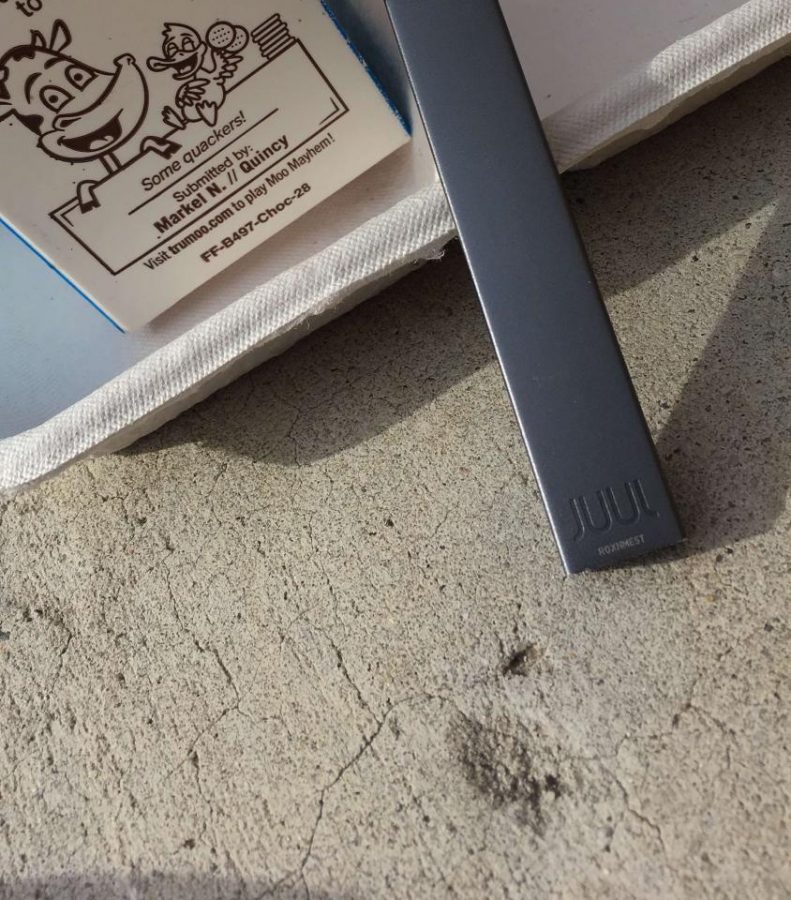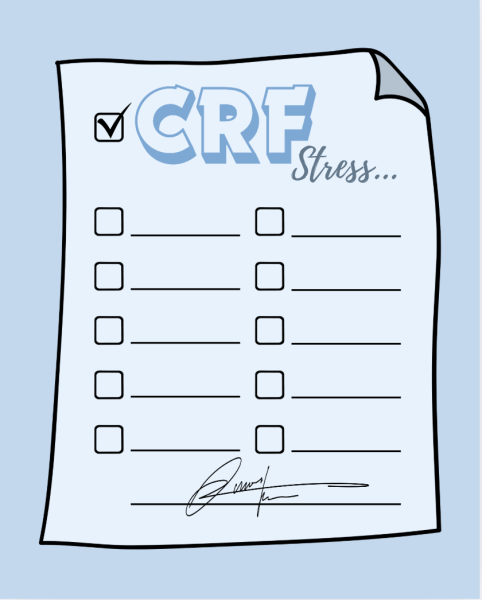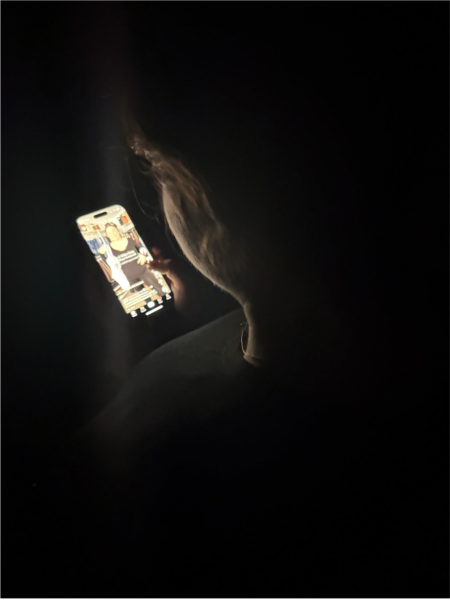Too JUUL for school
Arlington Public Schools “prohibits smoking or use of tobacco products, including e-cigarettes, on school property by anyone or at any time” according to the School Board Policy 25-1.3, 25-1.7 and the school’s student handbook. However, students have still been using e-cigarettes/vapes on school property, specifically an e-cigarette called the “JUUL”. The JUUL was meant to be an adult alternative to smoking however, the JUUL has become popular among underage children, an issue the school has been facing since the JUUL’s release in 2015.
An anonymous survey, aimed at a few General’s Period classes for each grade level, was conducted to determine the effects of JUULing and vaping specifically at the school. The survey, being a small sample, is not statistically accurate, but was used to get a general idea on the issue. 14 freshman, 35 sophomores, 27 juniors, and 29 seniors, a total of 105 students, completed the survey.
According to a study done by the Centers for Disease Control and Prevention (CDC) in 2015, about 16 percent of high school students vaped that year, which is around 2.39 million teens. The number of students who smoked cigarettes was significantly lower, the number being around 1.37 million. 6 out of the 105, a little over 5 percent of the students at the school anonymously surveyed, reported that they vaped/JUULed on school property. “JUULing is fun and it gives you a nice buzz,” a sophomore said. “I JUUL both in the bathroom and during class.”
The freshman class was the only class with no self reports of in school vaping/JUULing. However freshmen reported that they know other students in their grade that do indeed vape or JUUL in school. “I know for sure that freshmen are JUULing in school,” a freshman said. “I mostly see them [vaping or JUULing] in the bathrooms.”
For most vapes you must be at least over 18 to purchase them if they contain nicotine. Starting on August 23, 2017 the minimum age to purchase JUUL products on the JUULvapor.com website was increased from 18 to 21. In the retail environment however, “state law will govern the age at which a person can buy a tobacco or nicotine products.” To work around the increasing amount of precautions to keep minors from purchasing JUULs online, students have begun to find new ways to obtain them. “I ask a legal citizen with an ID to purchase [the JUUL and pods] for me,” a sophomore said.
According to the JUUL’s official website, one JUULpod is approximately equivalent to 1 pack of cigarettes or 200 puffs. Each JUULpod contains 0.7mL with 5% nicotine by weight. Common side effects of e-cigarettes include coughing, dehydration, sore throat, headaches, dizziness, nausea, and asthma. Nicotine is found in about 99% of vapes according to studies done by Action on Smoking and Health. Side effects of nicotine include addiction, increased blood pressure, cancer, mouth irritation, burping, head pain, increased production of saliva, jaw pain, and throat pain. JUULing/vaping can also lead to a nicotine overdose.
Seventy-two students anonymously surveyed reported they were aware of the negative health effects of JUULing and/or vaping. However, although students were indeed aware of negative effects, students who reported they vaped in or out of school, said they vaped regardless. “Why wouldn’t I [JUUL/vape]?,” a senior who reported they were aware of negative health effects and has vaped/JUULed said. “I’m not a regular user.”
Since only a small fraction of the school was surveyed, the results are consequently unscientific. However, this data still provides insight on the vaping and JUULing issue at the school. Although students are aware that the administrators and a few fellow students are on the watch for students vaping or JUULing on school grounds, students are continuing to do so nonetheless. Many students believe this issue is inevitable and that the school should stop trying to intervene. “Teachers and administrators should let it go and mind [their] own business,” a sophomore said. The kids do more than JUUL [and] you can not stop them from doing it.”
Second Chance, an alcohol and substance abuse and prevention education program for middle and high school students, is recommended by the county discipline guidelines for a first offense if a student and family choose that option. Otherwise, students are assigned to an In-School Alternative Program. Consequences may increase for multiple offenses. “We believe it is important to include an educational component as well to support students in making better decisions moving forward, so all substance violations include a referral to the school substance abuse counselor,” Dr.Robertson said.
Although a large number of students surveyed expressed that they didn’t care or have no opinion on people vaping or JUULing in school, a few students reported that they do find it troubling that their classmates are vaping or JUULing in school. “I think it is better than smoking tobacco, but still, I do not like the idea of people [vaping/JUULing in school],” a senior said. “It is dumb, but people can do what they want to do,” a junior said.
From a young age students are made aware of the stigma that comes with being a person who reports another student. A “snitch”, the name given to somebody who reports another student, is generally paired with a negative connotation. Only one student surveyed, a junior, said they had seen somebody vaping/JUULing, and that they did report them. Another 24 students said that they had not seen anyone vaping/JUULing in school, but that if they did, they would report them as well. However, 53 students said that they did see people vaping/JUULing, but that they did not report them. Another 25 students said that they had never seen anyone JUULing or vaping in school, but that if they did, they would not report them. A few students surveyed did not fill out this portion of the survey. “I am not a cop,” a sophomore who reported that they had seen people vaping/JUULing, and did not report them said. “I honestly do not care where they do it, they just better share.”
Even students with a negative opinion on others vaping or JUULing in school said that they still would not report another student. “It’s bad for you and it is stupid,” a sophomore who said they had not seen people vaping/JUULing but, that if they did would report them, “I understand it is relaxing or whatever, but you are wasting your money and ruining your body. What you do on your own time is your business, but do not do it at school.”
Five of the 105 students surveyed said they felt pressured to vape/JUUL. Students have expressed that the large numbers of students vaping/JUULing in school have made it so that others are following in their footsteps. “I feel like it is done too much,” a junior said. “It is very sad,” a sophomore said. “They are destroying their health and may not be a good example for people or kids who might be watching them.”
The administration is aware of the increase in vaping at the school. As this is a national epidemic, principals countrywide, are searching for ways to combat the increase in usage, including the school’s own principal. “Unfortunately, we have dealt with vaping in school bathrooms, in hallways, at sporting events, and even at pep rallies.” Principal Dr.Robertson said. “[The administration is] concerned that students do not view vaping as unhealthy or potentially harmful. In my opinion, advertising is done directly to encourage participation of young people, and flavor enhancers only serve to mask the harmful effects.”













Abi Genis • Dec 20, 2017 at 1:49 PM
Additionally, please feel free to use the following statement (attributed to a company spokesperson) in any future reporting on JUUL:
“JUUL Labs’ mission is to eliminate cigarette smoking by offering existing adult smokers with a better alternative to combustible cigarettes. JUUL is not intended for anyone else. We strongly condemn the use of our product by minors, and it is in fact illegal to sell our product to minors. No minor should be in possession of a JUUL product.
Our goal is to further reduce the number of minors who possess or use tobacco products, including vapor products, and to find ways to keep young people from ever trying these products. We approach this with a combination of education, enforcement, technology and partnership with others who are focused on this issue, including lawmakers, educators and our business partners.
Nicotine is addictive. An individual who has not previously used nicotine products should not start, particularly youth. Recent science raises serious concerns about the adverse effect of nicotine on adolescent neurodevelopment.
We encourage parents to talk with their children about the dangers of nicotine. As a company we also continuously seek ways to contribute to this dialogue and knowledge base.”